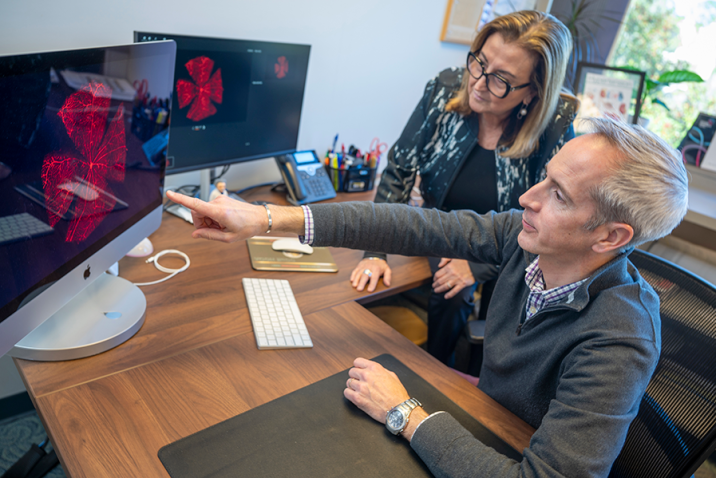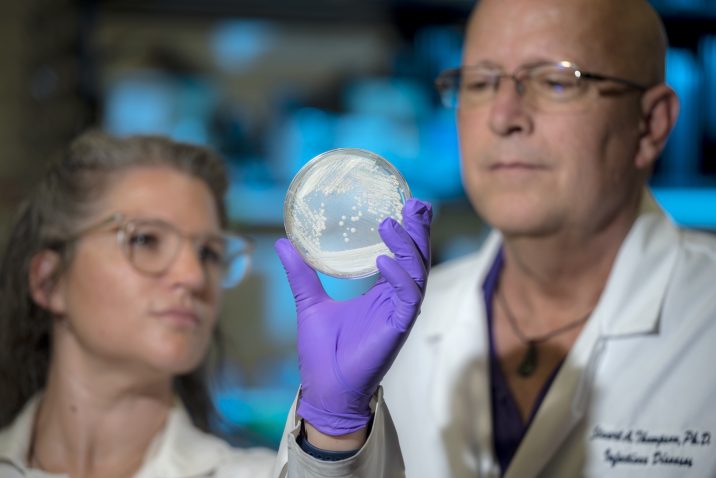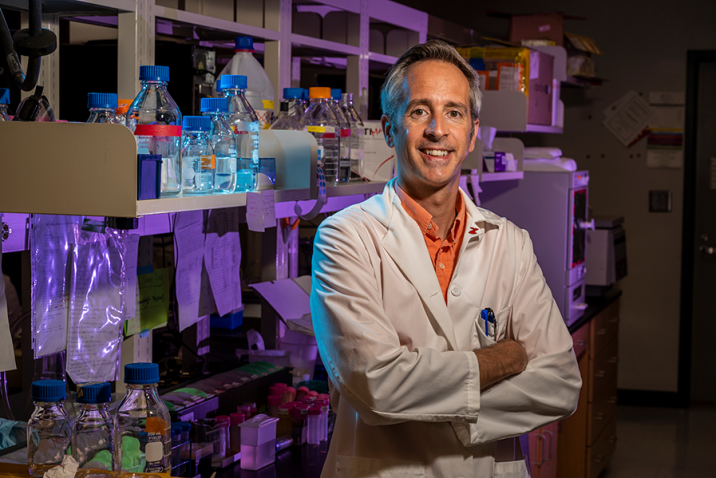MCG researchers awarded $275K grant to study HIV and retinopathy correlation
"We'll basically define a chronic HIV infection as a risk factor for the development of the most severe ocular disease," says Manuela Bartoli, PhD.
With a master’s in Epidemiology, you’ll be prepared to search for the causes of disease, determine who is at risk and design methods for controlling and preventing its spread.
The online program is designed for new college graduates or professionals working in academia or health care who want to gain additional theoretical and applied knowledge in epidemiology.
By choosing to earn your Master of Science in Epidemiology from the School of Public Health at Augusta University, you’ll be a part of a program taught by established clinical researchers with a team-based approach to teaching.
Epidemiology is for you if you consider yourself
Healing
like no
other.
Want to learn more about the Epidemiology program at Augusta University?
Request InfoWhat You'll Study
Students in Augusta University’s Master of Science in Epidemiology program will complete 36 credit hours in five semesters, including three credit hours of a capstone project.
The program is delivered in an online format, with the opportunity for students to complete the capstone project in their local area.
Curriculum | Admissions Criteria | Tuition and Fees | Application Deadlines



EXPLORE. EXCEL. EXPAND.
Augusta University's graduate programs are among the best in the nation – and the world – and our graduate students are our most valuable assets. To ensure that our students earn more than a degree, the Graduate School offers a range of opportunities so they can develop the leadership, communication and personal skills needed for a rewarding life and academic, research or professional career.
See what the Graduate School has to offer »
About the Graduate SchoolExperience-based Education
Mentored research opportunities that students can complete in their local areas make the class convenient for students across the state.
At the intersection of education and action lies the School of Public Health at Augusta University, one of Georgia's premier research institutions. Here, we provide students access to a growing research infrastructure to support their academic journey.
Our programs empower students to engage in research and outreach, enabling them to confront pressing health issues and promote health equity. The program equips students with the tools they need to address the underlying factors contributing to health disparities.
The online program is designed for working professionals with busy schedules, especially practicing physicians, nurses, health care administrators and other health care professionals.
Augusta University is the only public university in Georgia with an academic medical center and is one of only four public research universities in the state.
Faculty utilize a team-based approach that offers guest lectures in courses presented by other areas.
The required capstone project provides the chance to engage in exciting research from anywhere in the state.
Your Future
According to the U.S. Bureau of Labor Statistics, job growth for epidemiologists is projected to rise much faster than the average.
The median pay for an epidemiologist is $81,390 per year.
Profiles
GPA: Overall GPA of 3.0 on a 4.0 scale at the Baccalaureate level calculated on all undergraduate work.
Degree Requirement: Minimum of a Bachelor’s degree or equivalent from an accredited college or university.
Transcripts: Official transcripts are required from all universities and colleges ever attended. Unofficial transcripts from US colleges and universities can be used in the admissions review process in lieu of official transcripts for this program.
Standardized Test Requirements: Submission of official GRE exam score is optional.
Letters of Recommendation: Recommendations from three individuals must be submitted through the application portal.
International Students: Please review the verification process for international transcripts and the english proficiency requirement.
$4,801*
Estimated total
Full-time / In-State / Per Semester
$401
Tuition Per Hour
$675
Mandatory Fees
View Detailed Program Tuition
*Tuition & Fees listed here are for in-state students enrolling in the university for Fall 2024 semester.
Detailed Program Tuition InformationEarly submission of all application materials is strongly advised.
All required application materials and documents must be received in order for an application to be considered complete and before an admission decision can be made. The program does not accept applications after the published application deadline, however the program will continue to accept application materials up to 2 weeks after the application deadline.
The Student and Exchange Visitor Information System (SEVIS) Form I-20 for F-1 student status or Form DS-2019 for Exchange Visitor (J-1) Status cannot be issued by Augusta University for enrollment in this online program per U.S. immigration regulations. Questions? Please email International & Postdoctoral Services Office at ipso@augusta.edu.

Learning Like No Other
Studying on Augusta University’s Health Sciences Campus puts you in the center of its biomedical research enterprise, with access to the Georgia Cancer Center, the Medical College of Georgia and the state’s only public academic medical center.
Offered 100% online, the master’s in Epidemiology is designed for those who would like to earn an advanced degree without disrupting their career.
The faculty is composed of committed researchers involved in transdisciplinary research collaborations that enrich the academic experience for students while advancing scientific understanding.

"We'll basically define a chronic HIV infection as a risk factor for the development of the most severe ocular disease," says Manuela Bartoli, PhD.

A new 150,000-square-foot research building will provide modern laboratory spaces, advanced equipment and updated technology infrastructure at AU.

"It’s always special to be with our students to find out what the next steps in their journeys to becoming a physician will be,” says MCG Dean David Hess, MD.

“The issue is that the virus is still there and still able to release viral proteins,” says Eric Belin de Chantemèle, PhD.